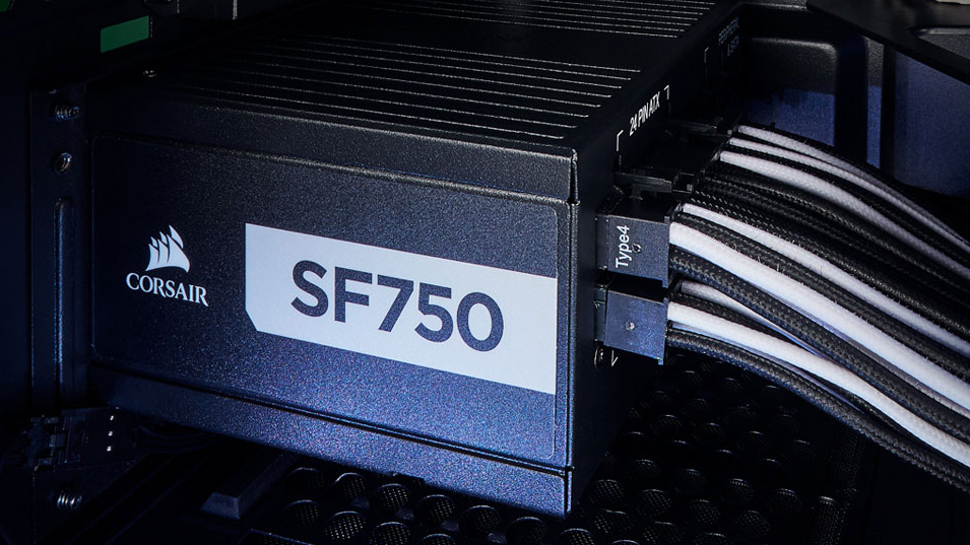Intel’s cooking up a new way to power PCs that’ll also make them cheaper
Revamped power supplies could make PCs much neater looking, too

Intel has redesigned PC power supplies (PSUs) to make them more efficient, not to mention more affordable, while shrinking down cabling and connectors to make the internals of the computer neater and tidier in general.
Sounds like a great idea, right? Well, it might not be quite that straightforward in practice, but certainly the intention is a laudable one, and there are many potential benefits as mentioned.
- Here’s why you should never skimp on the PSU
- Check out the best graphics cards money can buy
- The best gaming PCs of 2020
Intel’s new type of PSU uses its ATX12VO spec, which stands for ATX 12 Volt Only. As that name indicates, it will employ a single rail (12V) as opposed to the multiple rails in existing power supplies for PCs.
As PC World, which reported on this, points out, contemporary power supplies have pretty much shifted over to using 12V for the vast majority of the time, not using the other rails (like 3.3V and 5V) nearly as much as in the past.
Those other rails aren’t being ditched entirely, though, as they are still needed – 5V powers your SSD(s) and USB ports, for example – so they will instead be located on the motherboard rather than the PSU.
Intel observed that this is about making a move for much better efficiency with power supplies, telling PC World: “Existing ATX multi-rail power supplies (5V, 3.3V, 12V, -12V, 5VSB) are not very efficient at low loads of today’s desktop computers when at idle.”
That’s because all those multiple rails have to be fed with current, leaving efficiency levels at something like 50% to 60%.
Sign up for breaking news, reviews, opinion, top tech deals, and more.
Intel adds: “By converting to a single rail power supply, the conversion losses can be minimized, reaching up to 75% efficiency at the same DC Load levels.”
The cost-savings come into play because power-efficiency means that the PC will use slightly less electricity over time, and these PSUs should be much cheaper to make, and therefore far more affordable off the bat.
Corsair’s director of research and development, Jon Gerow, agreed with Intel that this should not only boost efficiency, but should reduce costs, and another power supply manufacturer said it would make PSUs ‘drastically’ cheaper to produce, no less.
A further boon will be neater cabling inside the PC, because the new PSU design means thinner cables and a smaller connector to the motherboard. Instead of the giant (and ugly) 24-pin affair which currently plugs into the motherboard, there’s a much tidier and more compact 10-pin connector. And less cluttered innards mean slightly better airflow in the PC, too.
Not all smooth sailing
It’s not all good news, though. The shift of those rails to the motherboard will potentially make mobos more costly, and could come with issues of its own – particularly in terms of thermals for particularly high wattage PSUs.
While initial motherboard offerings might be quite pricey, cost issues in that respect should settle down in the longer term.
There’s also the fact that both PSU makers and motherboard manufacturers will need to adopt the ATX12VO standard, because both of these pieces of the puzzle are obviously required. But will mobo makers implement the new spec if PSU companies haven’t, and vice versa…
Initially, it seems that ATX12VO is focused on PC manufacturers who will be able to incorporate the whole shebang in their machines themselves, as opposed to being available in the form of individual components for PC builders.
However, with any luck, the latter will come to fruition before too long, and folks building their own PC will get the choice of going the ATX12VO route, or sticking with existing multi-rail PSUs – which aren’t going away, in case you were concerned about that.
The chip giant said: “Intel plans to continue to publish the ATX Multi Rail spec to maintain compatibility with existing motherboards and power supplies to provide the most options for our OEMs and customers.”
More choice is, of course, a good thing, especially if it ultimately means more affordable and less cluttered PCs.
We should see the first use of these ATX12VO power supplies in prebuilt PCs from OEMs in the near future.
Darren is a freelancer writing news and features for TechRadar (and occasionally T3) across a broad range of computing topics including CPUs, GPUs, various other hardware, VPNs, antivirus and more. He has written about tech for the best part of three decades, and writes books in his spare time (his debut novel - 'I Know What You Did Last Supper' - was published by Hachette UK in 2013).